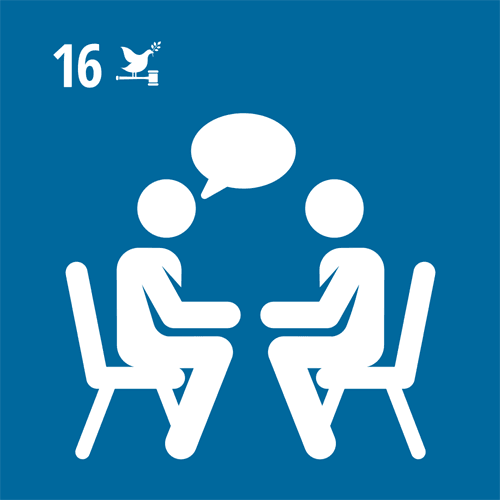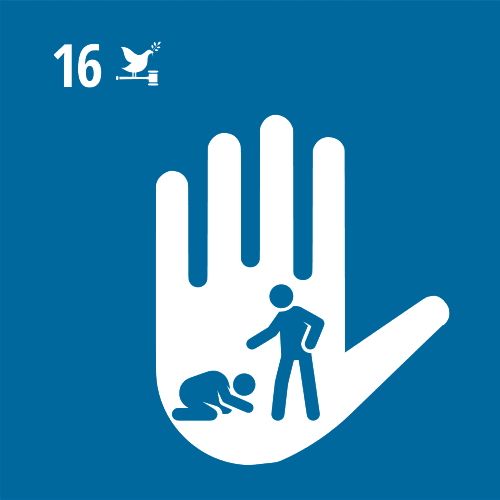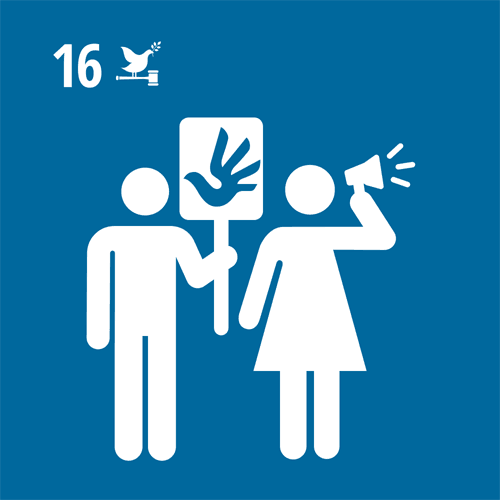Promote peaceful and inclusive societies for sustainable development, provide access to justice for all and build effective, accountable and inclusive institutions at all levels
This goal aims to stop violence, promote the rule of law, strengthen the institutions and increase access to justice, guarantee the respect of the rights and opportunities, improve access to public services, and expand economic development. One of the indicators measuring the achievement of this goal is the confidence of people, in our case - youngsters attending participating institutions. School is the most determining public institution for young people. This means that teachers and trainers play a very important role and their behaviour is decisive in achieving this SDG.
In connection with our project, we can understand this SDG as healthy social behaviour between students and we give special attention to the daily life of youngsters. It is essential to adopt non-violent behaviour, fight against bullying and other forms of violence, and adopt a proper and legal way of life.
To enable and encourage the learners to become agents of change, the students need to be able to recognise violence and develop a sensibility to empathise with those suffering injustices. The key competencies connected with this SDG are understanding of violence in group internal dynamics, recognising the justice system, and the acknowledgement of human rights. The students need to be able to recognise the effects of violent actions and dynamics of bullying. One of the most important skills is showing empathy, solidarity and cooperating with those suffering from violence and injustice. By mastering these competencies the learner can attain a positive and critical approach and become an agent of change.










